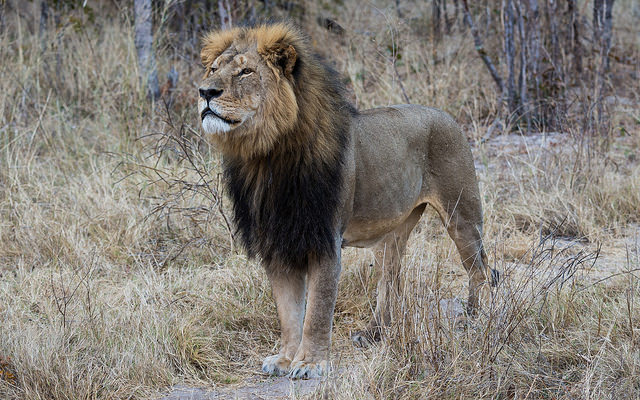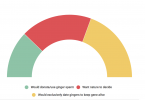Endangered animals are becoming weaker and more prone to disease because of deaths like Cecil the lion, leading Melbourne researchers have warned.
Trophy hunters, who kill the biggest and strongest males, are leaving weaker animals to breed future populations.
Melbourne University zoology researcher, Professor Mark Elgar, said trophy hunters are lowering many species chances of survival.
“There’s strong evidence that the spectacular male lions that trophy hunters target also represent the individuals of a higher quality than the rest of the population,” he said.
“Trophy hunters are typically shooting the lions with the strongest immune systems, the best access to food, and the highest odds of natural survival.
“It means the gene pool is diminished of those survival traits, and future populations will be weaker as a result.”
The number of lions left in the wild has fallen from 250,000 to around 30,000 in the last century, an 85 per cent drop.
Loss of habitat, environmental pressures and hunting are believed to be the main causes for the population decrease.
Genetics specialist Nick Murphy, who lectures at Latrobe University, says the selective killing of alpha males like Cecil can lead to inbreeding and slow responses to change.
This kind of hunting leads to a smaller gene pool, and that can cause permanent genetic change in populations,” Mr Murphy said.
“In the long term, species will have less genetic diversity to cope with environmental changes, which can be very detrimental.”
The warnings come after an American dentist shot dead one of Africa’s most famous lions, Cecil, after luring the animal out of a national park.
The lion was first wounded by bow and arrow, and then fatally shot with a gun more than a day later.
Member of the Melbourne Bow Hunters Association, Andrew Chapple, said the killing was a despicable act that poorly represented archers.
“It’s a terrible, cruel thing to do, and it rubs off very poorly on us,” he said.
“I would definitely support legislation of some sort to restrict trophy hunting.”
More than 18,500 tourists pay money to trophy hunt in Africa each year, according to a study by National Geographic.
The 2007 study revealed 105,000 animals are legally killed by trophy hunters in 11 different African countries every year, a number that has likely increased since.
Among the animals hunted include lions, tigers, elephants and rhinoceros.
A spokesman for World Animal Protection Australia slammed the hobby, describing the “cruelty behind the act as disturbing.”
“The rearing and killing of lions in the name of ‘entertainment’ must end. Animals belong in the wild and should not prop up this sordid industry.”
PHOTO: Vince O’Sullivan (Creative Commons)


